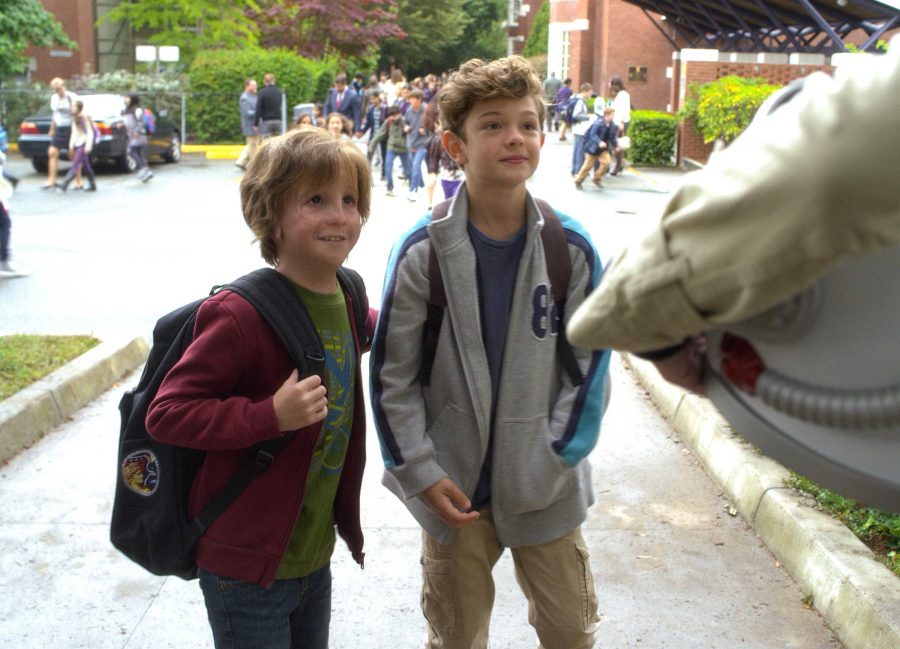By Kaydee Donohoo and Simran P. Gupta
Staff Writers
On Aug. 21, 2017 the Department of Education’s Office for Civil Rights sent a letter addressed to President Drinan citing the completed investigation of a complaint against Simmons College. The investigation looked into whether the College “discriminated against a student in the online Masters of Social Work program, by failing to provide her with appropriate academic adjustments to accommodate her disability.” The Office of Civil Rights (OCR) found enough evidence to charge Simmons with noncompliance with Section 504, and the college entered a Resolution Agreement.

Under Section 504 “no individual with a disability shall, on the basis of disability, be excluded from participation in, be denied the benefits of, or be otherwise subjected to discrimination under any postsecondary education program of a recipient.” Lack of necessary accommodations sets students with an unfair disadvantage, as participation is less accessible.
The letter declared that “the student’s process of requesting an extension from her professor varied significantly from how the interactive process should work.”
At the time of this letter, there was a blanket policy in place, which stated that extensions on papers or other assignments were not possible, as it may “in certain classes… alter the fundamental nature of a course.” According to the letter, the College encouraged students to talk with their professors, and if professors did not grant accommodations, students could return to the Disability Services Office (DSO) and have someone there speak to the professor. This made paper extensions a “case-by-case” basis.
According to the letter, the student is question claimed she did not know that the DSO could offer assistance, and that she was on her own. This information was not on the college’s disability services website for the Spring 2016 semester, as it was mistakenly taken down during website restructuring and migrations of information.
Without this knowledge the student emailed her professor asking for a paper extension, citing that she was in the process of registering with DSO. The professor gave an original extension, though the student emailed back asking for more time once the date was closer. As the student proposed a new deadline after another one was given, the professor responded that paper would receive a failing grade for lateness. In the letter, the professor is cited as saying that she “did not treat the student any differently than she would have treated a student without a disability.”
The letter points out that in not working directly with the DSO the professor did not know the nature of the student’s disability, and was also not professionally equipped with the experience or expertise for accommodating the disability, as someone from the DSO would be.
The student did not end up turning in the paper, citing that she did not see the value in an assignment that she knew would already receive a failing grade. The student ended up failing the course and being removed from her program. At the conclusion of the case, the College removed the two grades that were lowered, and refunded her for the two courses.
In addition to this “pursuant to the Agreement, the College will create a policy for providing extensions for papers and projects as an accommodation and effectively train its employees on the implementation of that policy.”
The Office of Student Affairs is awaiting approval on their proposed revised policy, and are hoping to fully implement these changes during the spring semester. “Our hope is for the end of January 2018,” stated Timothy Rogers, Director of Disability Services. If things go as hoped, the proposed new policy requires that the College’s DSO communicate directly with the professor on behalf of the student. In the meantime, the DSO will work individually with students to develop a plan.
Dean of Student Affairs, Susan Antonelli, urges students to start the process early for requesting accommodations. “If there’s a hiccup along the way, come back tell us what’s going on. Don’t white-knuckle it; sometimes students try to go without old accommodations to see if it can work but then have to rush to get accommodations,” she said.
The letter is a public record and can be found through the database on the Department of Education’s Civil Rights Office website.











